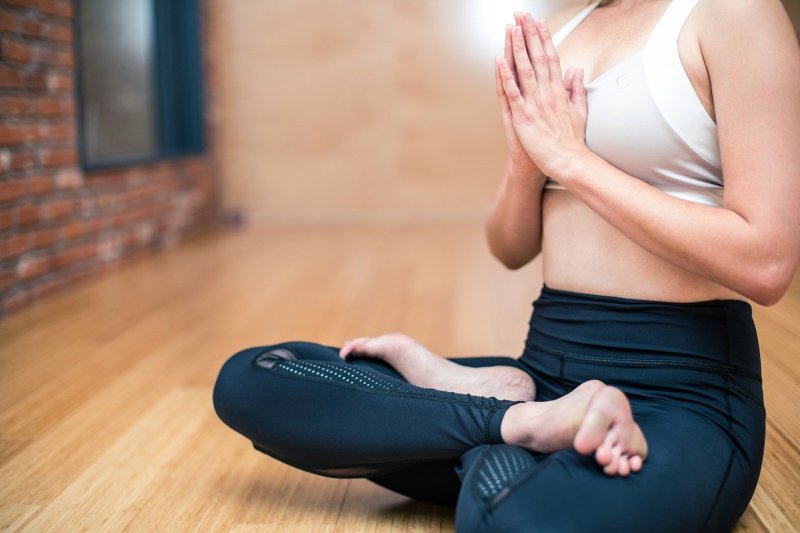
Kundalini yoga can help people with generalized anxiety disorder, a new study has found. Photo lograstudio/Pixabay
Aug. 12 (UPI) -- Yoga is an effective treatment for generalized anxiety disorder, a study published Wednesday by JAMA Psychiatry said, though researchers say therapy proved to be effective for more people.
More than half of patients who practiced Kundalini yoga, which includes movement, breathing techniques, meditation and chanting, responded well to therapy, the researchers said.
But cognitive behavioral therapy, or CBT, a form of psychotherapy, was effective for more patients, with 70% of people who underwent the treatment responding well.
Both approaches were more effective than stress education, which included lectures on the physiologic, psychological and medical effects of stress. One-third of all anxiety patients treated using this approach responded well, according to the researchers.
RELATED Anxiety, depression spiked among college students early in pandemic
"Yoga is a safe and popular stress reduction strategy that ... can also improve anxiety," study co-author Dr. Naomi M. Simon, professor of psychiatry at NYU Grossman School of Medicine, told UPI.
"These anxiety-reducing effects for people with generalized anxiety disorder, however, may be less strong or long-lasting than ... cognitive behavioral therapy," she said.
Generalized anxiety disorder is a chronic anxiety condition in which patients experience frequently overwhelming nervousness, worry and associated symptoms, according to Simon said.
Both approaches were more effective than stress education, which included lectures on the physiologic, psychological and medical effects of stress. One-third of all anxiety patients treated using this approach responded well, according to the researchers.
RELATED Anxiety, depression spiked among college students early in pandemic
"Yoga is a safe and popular stress reduction strategy that ... can also improve anxiety," study co-author Dr. Naomi M. Simon, professor of psychiatry at NYU Grossman School of Medicine, told UPI.
"These anxiety-reducing effects for people with generalized anxiety disorder, however, may be less strong or long-lasting than ... cognitive behavioral therapy," she said.
Generalized anxiety disorder is a chronic anxiety condition in which patients experience frequently overwhelming nervousness, worry and associated symptoms, according to Simon said.
Nearly 3% of U.S. adults have been diagnosed with the disorder, the National Institute of Mental Health estimates.
For their research, Simon and her colleagues compared treatment with Kundalini yoga, cognitive behavioral therapy and stress education in 155 adults with the condition.
Study participants practiced a Kundalini yoga program developed by the GuruRam Das Center for Medicine and Humanology. The program included physical postures and exercises, breathing techniques, relaxation exercises, meditation and mindfulness practices, yoga theory, philosophy and psychology.
For their research, Simon and her colleagues compared treatment with Kundalini yoga, cognitive behavioral therapy and stress education in 155 adults with the condition.
Study participants practiced a Kundalini yoga program developed by the GuruRam Das Center for Medicine and Humanology. The program included physical postures and exercises, breathing techniques, relaxation exercises, meditation and mindfulness practices, yoga theory, philosophy and psychology.
RELATED Abused, neglected kids show increased signs of biological aging
After 12 weeks of treatment, 32 of the 60 generalized anxiety disorder patients in the yoga group and 47 of 67 patients in the CBT group saw a reduction in their anxiety symptoms, the researchers said.
Nine of the 28 patients who received stress education -- including information on the effects of lifestyle behaviors, such as caffeine and alcohol consumption as well as smoking, diet and exercise -- experienced an improvement in their GAD symptoms, according to the researchers.
"Access and engagement are among the greatest challenges to helping people with distressing anxiety receive adequate treatment," Simon told UPI. "Many people either are unable to access or afford cognitive behavior therapy, for example, [but] yoga ... is widely available and popular."
upi.com/7028407














